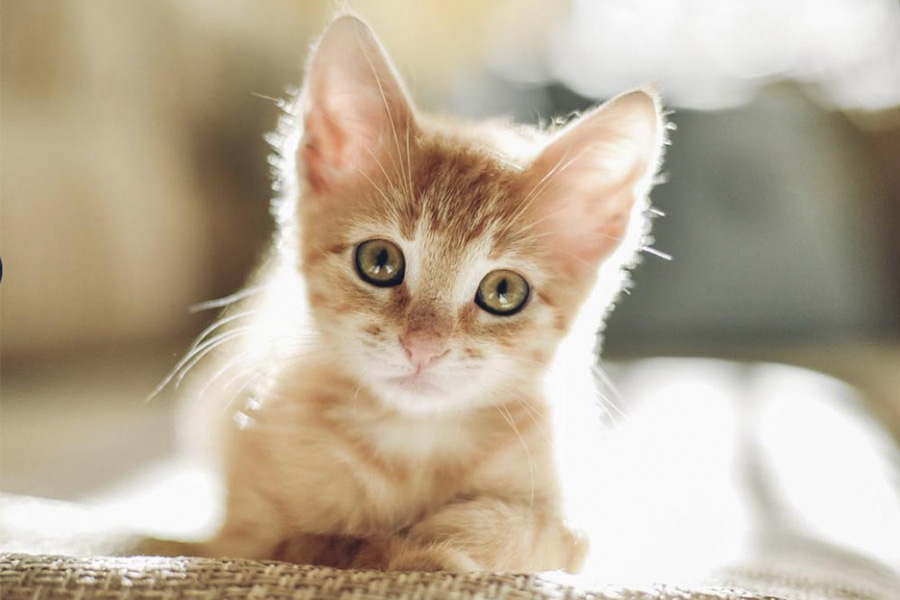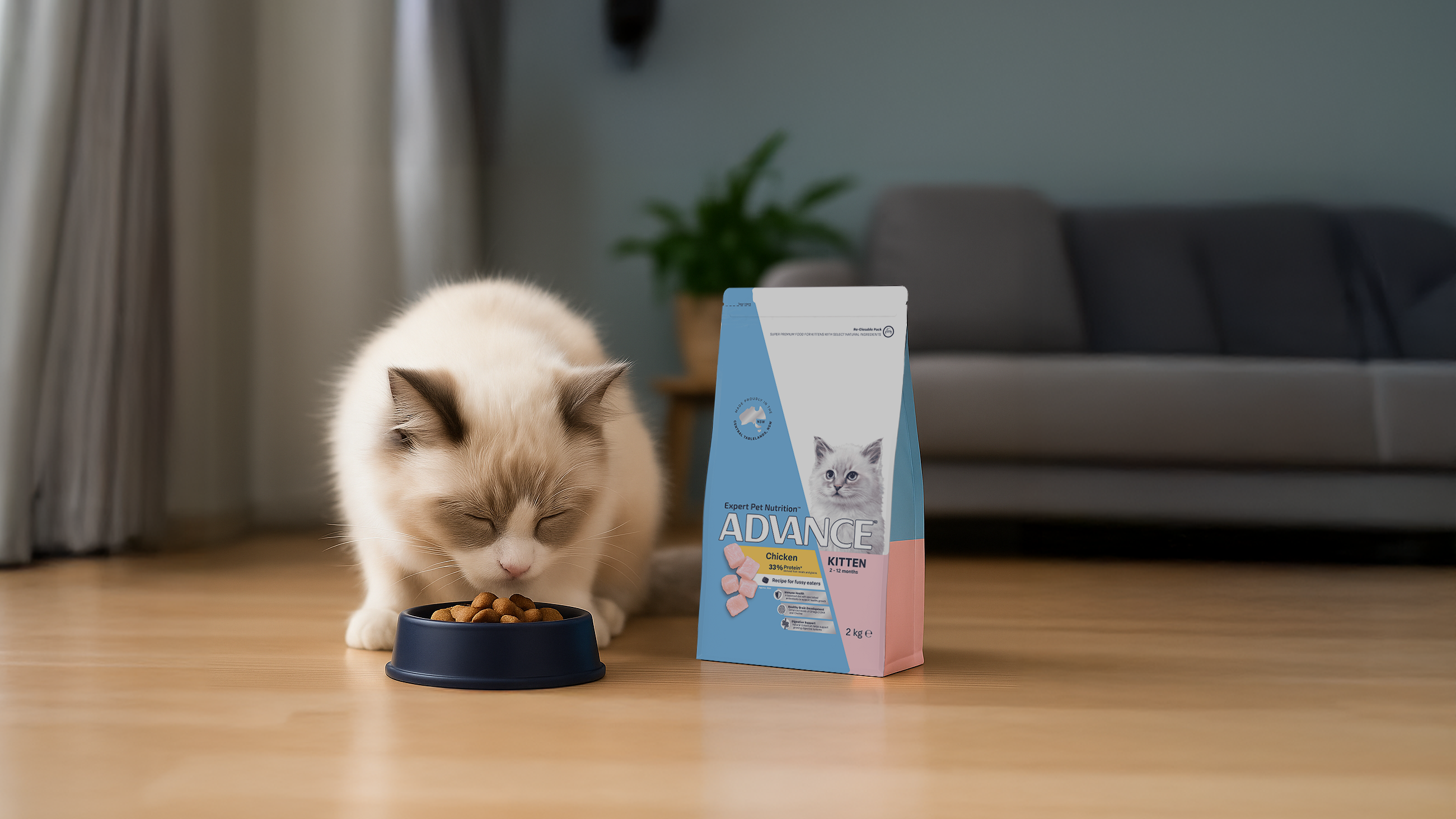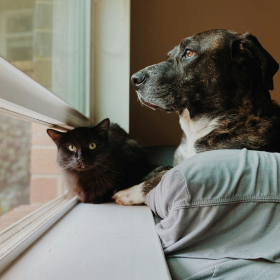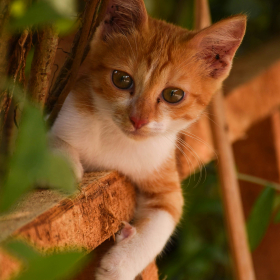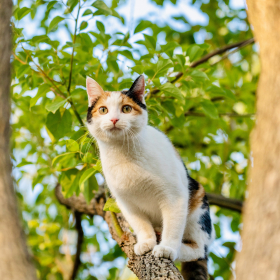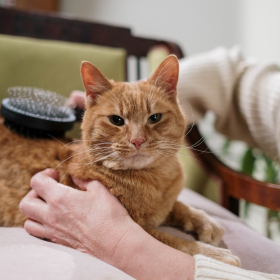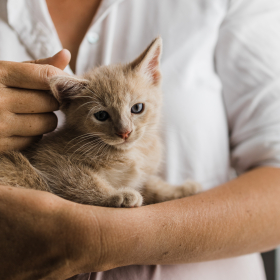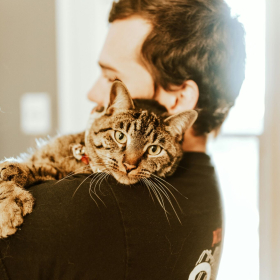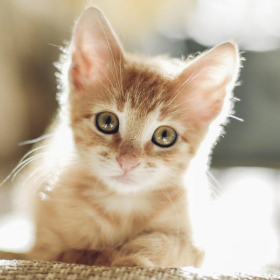Why vaccinations for your cat are important
Vaccines work by teaching your cat’s immune system to create antibodies that fight off a disease. While they can never be 100% effective at preventing infections, your cat’s boosted immune response will lessen the severity of symptoms and increase their chance of a full recovery. As kittens’ immune systems are still developing in the first few months of their life, it’s important to get them started on their kitten vaccinations early to safeguard them. If you think your cat isn’t at risk of catching a disease, you’d be surprised. Many common feline diseases are passed on from virus particles that have been shed into the environment, so sometimes your cat doesn’t even need to come into contact with another animal to be exposed.
Diseases unvaccinated cats are at risk of
In Australia, there are three [core vaccines] that are considered essential for all cats, covering feline respiratory disease, feline calicivirus, feline enteritis, due to the risk these diseases pose. Pet parents are also given the option to give their cat additional non-core vaccines for other common diseases, including feline leukaemia and chlamydia. These aren’t essential for all cats but may be recommended due to your cat’s location, health, or lifestyle. Failing to vaccinate your cat against diseases can put them at danger of serious illness or worse.

Feline enteritis
Feline enteritis, also known as feline distemper, is a highly contagious and often life-threatening viral disease caused by feline parvovirus, also known as the feline panleukopenia virus. It’s passed on via virus particles shed into the environment by infected cats, through faeces, urine, saliva, and vomit. It causes severe infection of the gut, which can lead to dehydration, diarrhoea, and vomiting. Sadly, the survival rate for kittens is low, but adult cats that receive quick veterinary care have a much better chance of recovery. But prevention is much better than treatment and, due to the severity of illness it can cause, the vaccination for feline enteritis is given as a core vaccine.
Feline respiratory disease
Feline respiratory disease is a contagious upper respiratory infection that causes sneezing, coughing, runny eyes and nose, and tongue ulcers. It’s caused by feline herpes virus type-1 and feline calicivirus, both of which can be contracted through direct contact with an infected cat or via contaminated items, such as cat bowls. The infection is commonly seen in unvaccinated cats. As feline herpes virus type-1 and feline calicivirus are both covered by core vaccines, these can protect your cat from developing feline respiratory disease. Unfortunately, without vaccination or treatment, it can lead to pneumonia and lasting eye damage.
Chlamydia
Feline chlamydia is a common infection that causes conjunctivitis (inflammation of the eye) and upper respiratory tract symptoms, such as sneezing and a runny nose. While it can be treated, some cats can end up with chronic conjunctivitis as a result of an infection. Typically, it’s usually only passed on via direct contact with an infected cat, as the bacteria can’t survive for long outside of the body. For this reason, it’s often advised that your cat is vaccinated against chlamydia if they live in a multi-cat household or have regular contact with other cats.
Feline leukaemia
Feline leukaemia (FeLV) attacks the immune system, and makes cats more susceptible to illness and infection, including cancer. Some of the most common signs of leukaemia include pale gums, yellowed eyes, loss of appetite, and enlarged lymph nodes. The disease is primarily passed on from cat to cat via the saliva and blood of an infected cat. This usually occurs during grooming or by sharing food bowls, which means cats in multi-cat households and outdoor cats that encounter other cats are most at risk, and benefit from the non-core vaccine that covers it.
